Clifford Garstang's Blog, page 26
April 1, 2021
2021 Reading–March
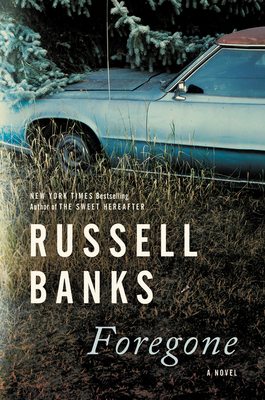 Foregone by Russell Banks
Foregone by Russell BanksForegone by Russell Banks is fascinating to me, in large part because of its structure. The main character, Leonard Fife, is a documentary filmmaker in Canada who, as he is dying of cancer, becomes the subject of a documentary that he himself has suggested to Malcolm, another filmmaker and Fife’s former student. Malcolm thinks he’s just filming an interview about Fife’s working career, but Leo wants to reveal his secrets to the world, secrets that include ex-wives and abandoned children. As the filming of the interview progresses, it all comes out. The question the reader has, though, is whether any of it is true. Fife admits to a history of lies, so what makes anyone think he’s telling the truth now? The longer he goes on, the less believable it all is. One of the things I appreciate about the book, though, is that we know who the narrator/main character is telling this tale to, which is something Banks talked about when I took a workshop in Mexico with him 15 years ago. Who you’re telling the tale to shapes the story, as Fife says here. He insists that his current wife, Emma, must hear what he has to stay because, he says, if she’s not present, he’s likely to lie. The book is partly a reflection on the anti-war period in which Leo’s most dramatic betrayal takes place, but it’s also a commentary on the unreliability of memory as well as the way an audience shapes the story being told.
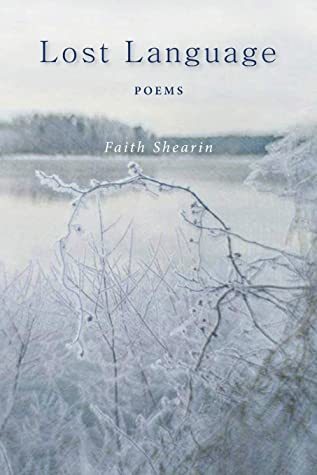 Lost Language by Faith Shearin
Lost Language by Faith ShearinLost Language by Faith Shearin is a collection of poems that deal with the poet’s grief over her husband’s death. (A few poems in the collection stray from that subject, but then the next one or the one after that returns.) The poems are all—and I mean all—beautiful. It’s a bit much, though, all this grief, and I kept having to put the book down. That’s probably the best way to read a book of poetry, anyway, absorbing the language and the grief a little at a time. This is a powerful book.
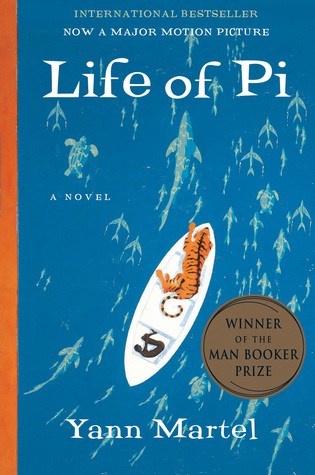 Life of Pi by Yann Martel
Life of Pi by Yann MartelLife of Pi by Yann Martel is a book I’ve resisted for a long time. The structure is peculiar. The narrator is a novelist who is wandering around India, struggling to find a subject, when he hears about a man who has a story to tell that will make you believe in God. He finds the man, in Canada, and that man, Pi (short for Piscine, a name that has its own story), begins to tell his tale, which is that his family was on a cargo ship bound for North America from India with a bunch of his father’s zoo animals that he was selling off to American and Canadian zoos. The ship sinks, leaving Pi in a lifeboat with an injured Zebra, a hungry Hyena, a depressed Orangutan, and a Bengal tiger. Since Pi is telling the story, it’s no spoiler that he survives the ordeal. There are some interesting wrinkles at the end, though, which makes the book ultimately meatier than I initially thought (despite the appearance of two cartoonish Japanese insurance investigators).
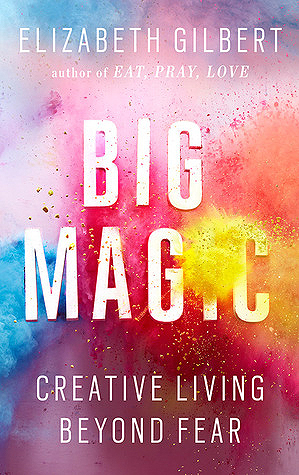 Big Magic by Elizabeth Gilbert
Big Magic by Elizabeth GilbertBig Magic by Elizabeth Gilbert is nonfiction about creativity as Ms. Gilbert sees it. I didn’t love it. It might have made a good essay, but for some reason she stretched into a few hundred pages. The bottom line: feed your creative urges. I certainly don’t disagree with that, but some of her self-righteousness is a little annoying. Don’t get an MFA, she admonishes. You don’t need anyone to teach you how to create. Um, well, maybe, but that’s not the only reason to get an MFA. It is after all, a teaching credential, and if one teaches, it’s one way to finance your creative career. And not everyone lives in New York City, where one can’t turn around without bumping into another writer, so an MFA program is a way to “find your tribe” to use her horrible expression. I haven’t read Gilbert’s other work, which may be fine, but I didn’t approach this book predisposed to like it. And I didn’t.
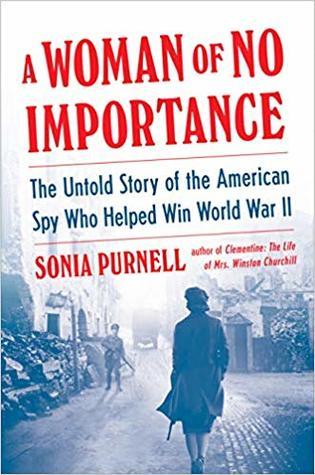 A Woman of No Importance by Sonia Purnell
A Woman of No Importance by Sonia PurnellA Woman of No Importance: The Untold Story of the American Spy Who Helped Win World War II by Sonia Purnell reads like a spy novel, but it’s a true account of Virginia Hall who was determined to play a useful role as a secret agent in France during the war. Denied work with the US State Department, she is recruited to work for a new clandestine service in England, which deploys her to occupied France under cover of being a journalist. Later, when they determine it’s unsafe to leave her there, she moves over to the OSS, the U.S. precursor to the CIA. By all accounts an amazingly successful agent, she also rubbed some people the wrong way and was not always treated well because she was a woman. The book includes horrific details of the arrest and torture of some of the people she recruited to work with her. This was my book club’s selection for March. It’s very readable and for the most part tells a spell-binding story. Highly recommended.
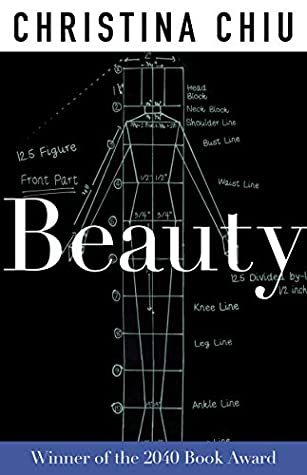 Beauty by Christina Chiu
Beauty by Christina ChiuBeauty by Christina Chiu is a fast-paced novel about Amy Wong, a Chinese American woman in New York City who was pretty messed up by her immigrant parents, a philandering father and an over-bearing fashion-minded mother. The chronological chapters, beginning when Amy is a girl, are separated by several years, which accelerates the story’s pace and also create fascinating gaps that the reader is left to fill. Importantly, though, we are always in Amy’s point of view, sharing her insecurities as well as her very strong feelings—her sexual urges but also her sense of right and wrong. If a reader expects a character transformation in fiction, that expectation will be satisfied here. I didn’t care for Amy much at first, in part because of her aggressive sexuality, but my appreciation for her grew as she matured and came into herself. Also, the book gives an inside look into the fashion business, about which I know next to nothing, and that was fascinating, too. Terrific novel.
March 31, 2021
I’ve Got Questions for Gary Pedler
Editor’s Note: This exchange is part of a series of brief interviews with emerging writers of recent or forthcoming books. If you enjoyed it, please visit other interviews in the I’ve Got Questions feature.
 Amy McDougall, Master Matchmaker by Gary PedlerWhat’s the title of your book? Nonfiction? Poetry? Fiction? Who is the publisher and what’s the publication date?
Amy McDougall, Master Matchmaker by Gary PedlerWhat’s the title of your book? Nonfiction? Poetry? Fiction? Who is the publisher and what’s the publication date?Amy McDougall, Master Matchmaker. Fiction, specifically Middle Grade fiction. Regal House/Fitzroy Books, with publication on April 1. Was that a good choice of a date, I wonder?
In a couple of sentences, what’s the book about?Thirteen-year-old Amy McDougall decides her adopted gay dad needs a boyfriend and it’s her job to find him one.
What’s the book’s genre (for fiction and nonfiction) or primary style (for poetry)?Contemporary MG fiction.
What’s the nicest thing anyone has said about the book so far?That it’s “utterly charming,” as one reviewer said. That’s hard to beat!
What book or books is yours comparable to or a cross between? [Is your book like Moby Dick or maybe it’s more like Frankenstein meets Peter Pan?]I’m not fond of the whole comparables business, so I’ll pass on this one. If a book is truly comparable to another, why was it written and published?
Why this book? Why now?Amy McDougall is a fast, funny read. However, it does touch on an important issue of our times, which is: what exactly makes up a family? This novel presents a single gay dad and his adopted daughter as a family, with its own traditions, like Movie Musical Night and celebrating the Fourth of July in a particular way.
I’d like to add that, while the book is aimed at a Middle Grade audience, I hope it will also be a good read for adults, especially since the adult characters are unusually prominent for a book aimed at this age group.
Other than writing this book, what’s the best job you’ve ever had?None. I never felt I fit into the world of conventional work, which is why I’m glad I retired at fifty and could focus on the creative work of writing. Though I did kind of enjoy my part-time job in my senior year of high school working in a library. Napa, my hometown, had a lovely old library, the Goodman Library. After the city built a new library for adults, they made the Goodman a children’s library. That was fun, a library entirely devoted to books for kids! I was a “shelver,” shelving books, hopefully correctly in most cases!
What do you want readers to take away from the book?A smile. The sense that they’ve enjoyed the company of these characters. A memory of them that will linger.
What food and/or music do you associate with the book?I put a lot of food in the book because I think readers – especially young readers – enjoy this. When Amy and her dad have a prospective boyfriend to dinner, they make for him a chicken dish with olives that I’ve made myself.
As for music, when I fantasize the novel as a movie, I imagine that during the opening credits, the music will be “Good Morning, Starshine” from Hair, as sung by the British singer Oliver. A filmmaker would tell me it isn’t appropriate because, one, the story isn’t set in the sixties and two, it’s a love song. Though I would argue that lyrics like “Glibby gloop gloopy, Nibby nabby noopy, la la la lo lo” also make it a good song for an early teen audience.
What book(s) are you reading currently?As usual, I’ve got two books going, one that’s more difficult and another that’s less. The more difficult book is hard because it’s in French. Des Grives aux Loups is a multi-generational story about a peasant farming family. This means I’ve added to my French vocabulary words like “moo.”
 Gary Pedler
Gary PedlerLearn more about Gary at his website.
Follow him on Facebook.
Buy the book from Regal House/Fitzroy Books (the publisher), Bookshop.org, Barnes & Noble, or Amazon.com.
March 26, 2021
I’ve Got Questions for Pauletta Hansel
Editor’s Note: This exchange is part of a series of brief interviews with emerging writers of recent or forthcoming books. If you enjoyed it, please visit other interviews in the I’ve Got Questions feature.
 Friend by Pauletta HanselWhat’s the title of your book? Fiction? Nonfiction? Poetry? Who is the publisher and what’s the publication date?
Friend by Pauletta HanselWhat’s the title of your book? Fiction? Nonfiction? Poetry? Who is the publisher and what’s the publication date?Friend (Dos Madres Press, 2020) Poetry
In a couple of sentences, what’s the book about?Friend is epistolary (letter) poems written to other poets during the early days of the Covid-19 pandemic, a poetic record of my own experience of this time. Most of the poems were written in the first 6 weeks, with a sort of coda in early June, in the aftermath of the country’s racial reckoning in the aftermath of George Floyd’s murder.
What’s the book’s genre (for fiction and nonfiction) or primary style (for poetry)?Epistolary (letter) poems. Each is titled with the date, and written to a specific “you.”
What’s the nicest thing anyone has said about the book so far?Some folks have said that they have returned to the poems again when trying to express their own experiences. One blurber (Richard Hague) said, “We will not recover fully from our time of plague and presidential cruelty, but these poems attest to resiliency, to the power of community, and to the soul of art. We must thank Pauletta Hansel for the courageous attention she has paid.”
What book or books is yours comparable to or a cross between? [Is your book like Moby Dick or maybe it’s more like Frankenstein meets Peter Pan?]Oh, lordy! It feels like anything I would say in response to this would be hyperbole! I will say that part of my inspiration was the poetic exchange between Ada Limon and Natalie Diaz published in the New Yorker, though I would not compare myself to either of those stars.
Why this book? Why now?The poems were written as part of an epistolary exchange with poets in one of my community poetry class in spring 2020. I had developed the syllabus pre-pandemic, but it turned out to be a true gift to all of us when we had to stop meeting after the second class. The exchange certainly was a major boon to my own resiliency during that time. I was working with a mentor, Rebecca Gayle Howell, and she encouraged me to pull the poems together in a manuscript, which then my publisher, Dos Madres Press, accepted. I hope that the book will help others explore their own experiences and memories of life in the pandemic, and beyond.
Other than writing this book, what’s the best job you’ve ever had?I do love teaching poetry! Because this book came out while we are still doing very little in person, I had to get creative about marketing. I used it as a text for an online epistolary poetry class called “Dear Friend.” That turned out to be one of the most rewarding classes I have taught—not just because people bought my book (LOL!), but because they, too, found such comfort and challenge in epistolary poetry.
What do you want readers to take away from the book?That there is value in such an intimate exploration of self within the wider sweep of history and time. And, at the same time, that it is not about the “self” alone. To quote from Friend: “We are all in the room, friend,/ no matter what door we entered./ We call the room longing;/ we are in it together, /alone.”
What food and/or music do you associate with the book?Well, wine and chocolate with the pandemic, that’s for sure. But for the book, probably birdsong, as much of it was inspired by my daily walks.
What book(s) are you reading currently?The third book in Robert Gipe’s amazing trilogy of novels about Appalachia, Pop. I am lucky enough to be part of a public conversation with him for the Mercantile Library next month. I just finished Claudia Rankine’s Just Us and I am grateful for the uneasiness it has engendered. Now it is up to me to not push it away, but to keep living with it long enough to let it change me. I have a whole stack of poetry books I am anxious to get to, top among the Michael Simms’ American Ash and Alison Luterman’s In the Time of Great Fires.
 Pauletta Hansel (photo by Kentucky Rose Photography)
Pauletta Hansel (photo by Kentucky Rose Photography)Learn more about Pauletta on her website.
Buy the book from Dos Madres Press (the publisher) or the author.
The book is also available from Small Press Distribution.
March 25, 2021
Books on Sale!
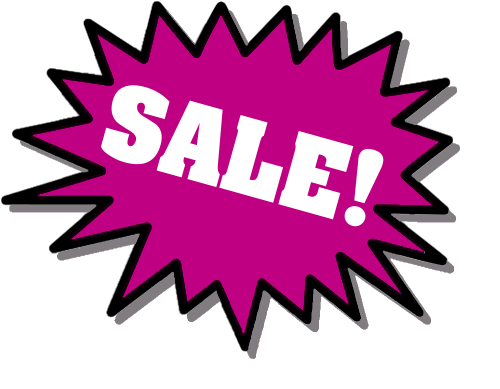
Talk about March Madness! In part because I haven’t been able to do any in-person events for the past year, I’ve ended up with more copies of my books than I really have room for. And what do people do when they have too much inventory? They have a sale! So, I’m having a sale.
While supplies last, get a copy of any of my books (other than Oliver’s Travels, which hasn’t been published yet) for just $10 plus $3 shipping. Just send me an email at cliffgarstang@gmail.com, tell me which book(s) you want, and I’ll send you a Square invoice.
Read all about the books.
There are three short-story collections, a novel, and three anthologies. $10 each, plus shipping. Read more about them at the links below and then let me know which one(s) you want!

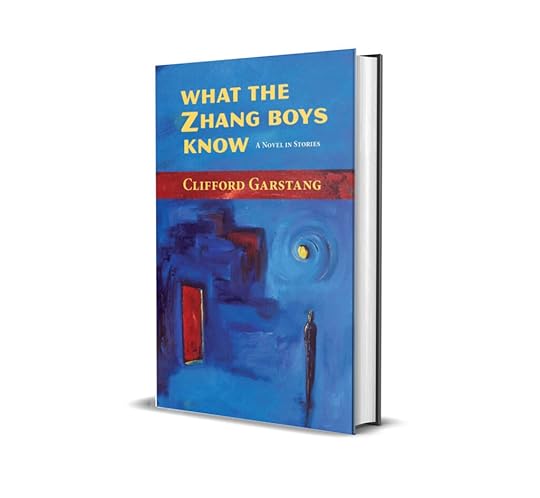
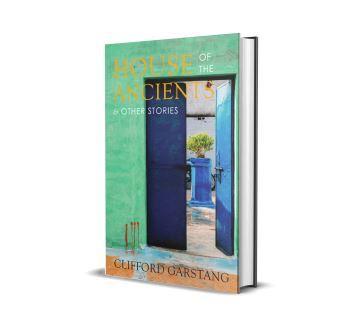
House of the Ancients and Other Stories


Everywhere Stories: Short Fiction from a Small Planet Volume I
Everywhere Stories: Short Fiction from a Small Planet Volume II
Everywhere Stories: Short Fiction from a Small Planet Volume III
March 24, 2021
I’ve Got Questions for David Scott Hay
Editor’s Note: This exchange is part of a series of brief interviews with emerging writers of recent or forthcoming books. If you enjoyed it, please visit other interviews in the I’ve Got Questions feature.
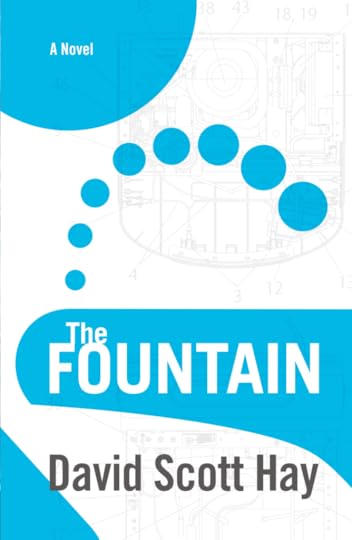 The Fountain by David Scott HayWhat’s the title of your book? Fiction? Nonfiction? Poetry? Who is the publisher and what’s the publication date?
The Fountain by David Scott HayWhat’s the title of your book? Fiction? Nonfiction? Poetry? Who is the publisher and what’s the publication date?The Fountain, fiction, published by Whisk(e)y Tit Press (NY/VT), February 2021
In a couple of sentences, what’s the book about?Set in the Chicago art world, a magical elixir grants talentless people the ability to create a singular artistic masterpiece, but you may end up dead. Do you drink?
What’s the book’s genre (for fiction and nonfiction) or primary style (for poetry)?Literary satire
What’s the nicest thing anyone has said about the book so far?“A passionate meditation on art wrapped in a hilarious sendup of artistic pretentions.” – KIRKUS (starred review)
What book or books is yours comparable to or a cross between? [Is your book like Moby Dick or maybe it’s more like Frankenstein meets Peter Pan?]Tone wise,it’s been compared to David Foster Wallace and Monty Python with a heart.
Why this book? Why now?It’s funny without being dour, thoughtful without being pedantic. The exploration of craft and art measured against instant fame is more relevant than ever in this new age of influencers and viral video fame.
Other than writing this book, what’s the best job you’ve ever had?Writing/ directing my feature film HARD SCRAMBLED and as a rehearsal PA for David Mamet’s THE OLD NEIGHBORHOOD. Both were invaluable learning experiences from both ends of the hierarchy.
What do you want readers to take away from the book?I want their thoughts provoked and I want to know: would they drink the water?If you can answer that question then you’ll truly know thyself.
What food and/or music do you associate with the book?The Flaming Lips circa their The Soft Bulletin through At War with the Mystics period.Also, Zoe Keating.
What book(s) are you reading currently?Bear vs Shark by Chris Bachelder, The Bomber Boys by Travis L. Ayres. I have Antkind and Middlegame teed up, but right now they’re currently serving as literal bookends. I buy way more than I read. Sometimes owning a copy of the idea is enough and authors get their royalties.
 David Scott Hay
David Scott HayLearn more about David at his website.
Buy the book from Whiskey Tit.
March 22, 2021
I’ve Got Questions for Shelly Milliron Drancik
Editor’s Note: This exchange is part of a series of brief interviews with emerging writers of recent or forthcoming books. If you enjoyed it, please visit other interviews in the I’ve Got Questions feature.
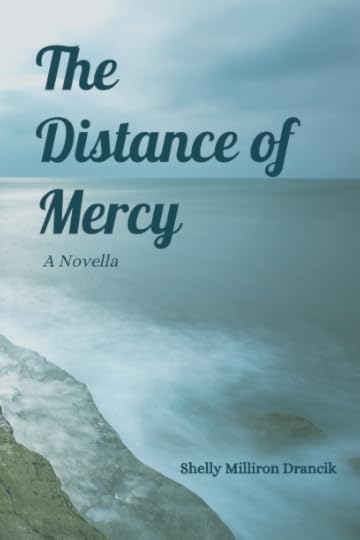 The Distance of MercyI by Shelly Milliron DrancikWhat’s the title of your book? Fiction? Nonfiction? Poetry? Who is the publisher and what’s the publication date?
The Distance of MercyI by Shelly Milliron DrancikWhat’s the title of your book? Fiction? Nonfiction? Poetry? Who is the publisher and what’s the publication date?The Distance of Mercy; fiction; Unsolicited Press, February 9, 2021
In a couple of sentences, what’s the book about?An Austrian university student raised in postwar Vienna betrays her father by studying the violin in Chicago in the late 60s. There, she meets an African-American woman and the two develop an unconventional friendship, one that gives them some of what war stole from them.
What’s the book’s genre (for fiction and nonfiction) or primary style (for poetry)?Historical Fiction
What’s the nicest thing anyone has said about the book so far?“I stayed up until 1:00 a.m. to finish reading it.”
What book or books is yours comparable to or a cross between? [Is your book like Moby Dick or maybe it’s more like Frankenstein meets Peter Pan?]The screenplay I wrote adapted from this book was described as Brooklyn meets The Pianist. (I’m beyond honored by the slightest comparison to these stories.)
Why this book? Why now?It’s a story of a child’s buried grief that wouldn’t let go of me. And why now? Because the lingering effects of war and racial prejudice on families and individuals still exist today.
Other than writing this book, what’s the best job you’ve ever had?Working at the Chicago International Film Festival in the midst of filmmakers
What do you want readers to take away from the book?A little more empathy for others, especially when we can’t understand their past
What food and/or music do you associate with the book?Music of Schubert; linzertorte and American diner food
What book(s) are you reading currently?Coventry by Rachel Cusk
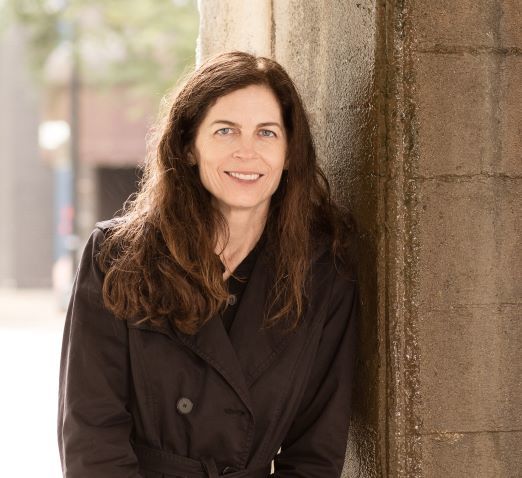 Shelly Milliron Drancik
Shelly Milliron DrancikLearn more about Shelly at her website.
Buy the book from Unsolicited Press, Bookshop, or Amazon.
March 19, 2021
I’ve Got Questions for Michael K. Brantley
Editor’s Note: This exchange is part of a series of brief interviews with emerging writers of recent or forthcoming books. If you enjoyed it, please visit other interviews in the I’ve Got Questions feature.
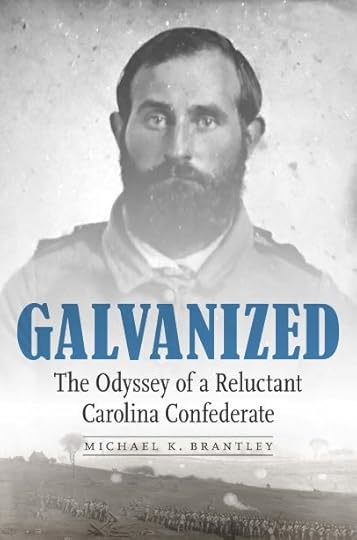 Galvanized by Michael K. BrantleyWhat’s the title of your book? Fiction? Nonfiction? Poetry? Who is the publisher and what’s the publication date?
Galvanized by Michael K. BrantleyWhat’s the title of your book? Fiction? Nonfiction? Poetry? Who is the publisher and what’s the publication date?Galvanized: The Odyssey of a Reluctant Carolina Confederate; Nonfiction; University of Nebraska Press/Potomac Books; May 1, 2020
In a couple of sentences, what’s the book about?Every Civil War veteran had a story to tell. But few stories top the one lived by Wright Stephen Batchelor. He opposed secession and war, yet he fought on both sides of the conflict. During his time in each uniform, Batchelor barely avoided death at the Battle of Gettysburg, was captured twice, and survived one of the war’s most infamous prisoner-of-war camps. He escaped and, after walking hundreds of miles, rejoined his comrades at Petersburg, Virginia, just as the Union siege there began. Once the war ended, Batchelor returned on foot to his farm, where he took part in local politics, supported rights for freedmen, and was fatally involved in a bizarre hometown murder. The book also examines how the Civil War is still being fought today.
What’s the book’s genre (for fiction and nonfiction) or primary style (for poetry)?It’s a hybrid of narrative historic nonfiction, the pursuit of research for a “non-famous” person, and a blending of memoir and a contemporary look at the conflicts that still haunt the United States over a century and a half later.
What’s the nicest thing anyone has said about the book so far?“Michael Brantley’s Galvanized is a conscientious and sweeping hybrid narrative gathering together fragments of the author’s personal history—that of his great-great-grandfather’s life in nineteenth-century North Carolina—alongside elaborately researched accounts of the Civil War. When Brantley offers, ‘These were the stories that had become interesting to me, the stories about real people, regular people,’ he focuses our attention on the plural, people, and reminds us how interconnected our histories are and forever will be.”—Jon Pineda
And a couple of people emailed me to say they don’t normally read history, but loved it.
What book or books is yours comparable to or a cross between? [Is your book like Moby Dick or maybe it’s more like Frankenstein meets Peter Pan?]It is sort of like Confederates in the Attic meets Company Aytch, plenty of history, from the common person’s view, with another thread of contemporary times.
Why this book? Why now?It was supposed to be a chapter in my first book, but I couldn’t finish the research. Then, so many things like monuments and statues have come to the forefront of our time again, it makes it relevant. And, tracking down an ancestor has perhaps never been more popular with the surge of DNA kits and genealogy during this pandemic.
Other than writing this book, what’s the best job you’ve ever had?It’s close between teaching journalism and creative writing at Barton College, which I’m doing now, or working as a professional photographer for 18 years at my own business.
What do you want readers to take away from the book?I want people to realize that history has to be judged in the context of times and that the Civil War was too complex to be broken down into sound bites. It was a rich man’s war and a poor man’s fight, and neither had the same values. The stories of the famous have been told; the common folks, not so much. I also want people today to take a look at the whole picture and not just “one side,” to be more understanding of people who might have different views. I’m not out to change anyone’s beliefs, just present information is a way that challenges them think in a way maybe they haven’t.
What food and/or music do you associate with the book?Bluegrass music or old-time music, for sure, the kind of songs like Balsam Range’s “Burning Georgia Down” or “From a Georgia Battlefield” or the Infamous Stringduster’s “Three Days in July.” Simple, country food like grits and country ham and biscuits come to mind.
What book(s) are you reading currently?George Washington on Leadership by Richard Brookhiser; Fenway 1912: The Birth of a Ballpark by Glenn Stout; I just finished John Ehle’s Time of Drums and Charles Frazier’s 13 Moons
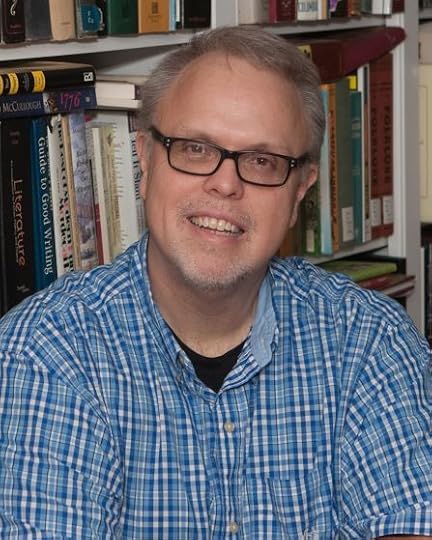 Michael K. Brantley
Michael K. BrantleyLearn more about Michael at his website.
Follow him on Facebook.
Buy the book from the publisher, University of Nebraska Press/Potomac Books [there’s a discount code for free shipping and 40% 6NIN21]
Buy the book from Bookshop.org.
March 17, 2021
I’ve Got Questions for Steven Mayfield
Editor’s Note: This exchange is part of a series of brief interviews with emerging writers of recent or forthcoming books. If you enjoyed it, please visit other interviews in the I’ve Got Questions feature.
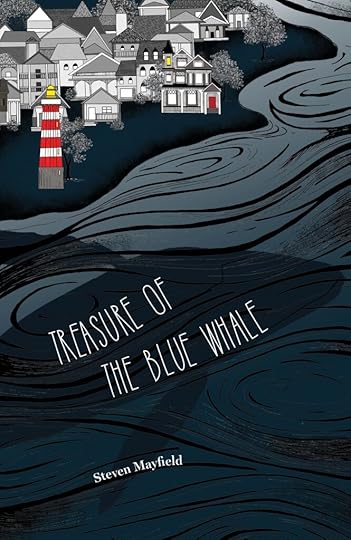 Treasure of the Blue Whale by Steven MayfieldWhat’s the title of your book? Fiction? Nonfiction? Poetry? Who is the publisher and what’s the publication date?
Treasure of the Blue Whale by Steven MayfieldWhat’s the title of your book? Fiction? Nonfiction? Poetry? Who is the publisher and what’s the publication date?Treasure of the Blue Whale, Fiction, 4/1/2020 (Regal House)
In a couple of sentences, what’s the book about?In this whimsical tale set during the Great Depression, young Connor O’Halloran offers to share a treasure he’s discovered on an isolated stretch of Northern California beach, then conspires with a handful of town leaders to save their sleepy, seaside village from financial ruin when it turns out that the treasure is not real.
What’s the book’s genre (for fiction and nonfiction) or primary style (for poetry)?Contemporary, non-genre fiction
What’s the nicest thing anyone has said about the book so far?“In these challenging times, Steven Mayfield’s Treasure of the Blue Whale provides an oasis of humor and comfort as it portrays a small town during the Great Depression. Mayfield beautifully depicts the town’s characters and what happens to them, creating a novel that’s charming and even laugh-out-loud funny.” —Blue Ink Review
What book or books is yours comparable to or a cross between? [Is your book like Moby Dick or maybe it’s more like Frankenstein meets Peter Pan?]Faulkner’s The Reivers meets Steinbeck’s Cannery Row
Why this book? Why now?The novel combines humor and pathos, as it barrels toward an ending that I promise will not make the reader feel wretched. It’s a feel-good book in a time where a lot feels bad.
Other than writing this book, what’s the best job you’ve ever had?I ran the projectors at the movie theater in my little home town when I was a teenager. Saw everything, got free popcorn. Best movies I knew nothing about before they ran? Carl Reiner’s Enter Laughing and Joseph L. Mankiewicz’s The Honey Pot. Worst? Anything about a motorcycle gang or with the word “bikini” in the title. Oh yeah…and Lord Love A Duck. That one was really bad.
What do you want readers to take away from the book?That people are strongest and most resilient when they draw from a well of generosity rather than greed, decency rather than corruption, love rather than hate…also that we’re all a bit weird, and at times, totally hilarious. In fact, the generosity, decency, and love stuff sounds sort of sanctimonious, now that I think about it. Let’s go with weird and hilarious.
What food and/or music do you associate with the book?Interesting question. I generally associate everything with wine and Italian food. I read Chaim Potok’s The Chosen while dining on veal saltimbocca and a Nebbiolo and James Baldwin’s Go Tell it on the Mountain with lasagna and a Brunello. Ironically, I read The Secret of Santa Vittoria over a burger and fries. Push to shove, Treasure of the Blue Whale is Depression-era, so spam and potatoes with bathtub gin.
What book(s) are you reading currently?Just finished Q & A by M. Allen Cunningham and an ARC of Dan Kopkow’s dystopian thriller, Prior Futures. Next on my list are David Roth’s The Femme Fatale Hypothesis and Eric Sean Rawson’s Banana Republic. Looking forward to the June release of Alice Kaltman’s Dawgtowne.
 Steven Mayfield
Steven MayfieldLearn more about Steven at his website.
Follow him on Facebook, Twitter, and Amazon.
Buy the book from Regal House (the publisher), Amazon, Barnes & Noble, Kobo, Annie Bloom’s Books, Rediscovered Bookshop, or Bookshop.org.
March 15, 2021
I’ve Got Questions for April Ford
Editor’s Note: This exchange is part of a series of brief interviews with emerging writers of recent or forthcoming books. If you enjoyed it, please visit other interviews in the I’ve Got Questions feature.
 Carousel by April FordWhat’s the title of your book? Fiction? Nonfiction? Poetry? Who is the publisher and what’s the publication date?
Carousel by April FordWhat’s the title of your book? Fiction? Nonfiction? Poetry? Who is the publisher and what’s the publication date?Carousel is my first published novel, and it debuted, thanks to the tireless love and labor of Inanna Publications, on May 8, 2020.
In a couple of sentences, what’s the book about?This is a great question for authors to revisit periodically—what is my book about after all this time has passed since the first line I wrote? Well, Carousel is a story about messy, sometimes beautiful and sometimes ugly, lives, and it’s about love that doesn’t behave the way we’re taught to believe it should. It’s also a motherlode of secrets.
What’s the book’s genre (for fiction and nonfiction) or primary style (for poetry)?Literary fiction.
What’s the nicest thing anyone has said about the book so far?Reader Brianne Lashley shared her review of Carousel on Goodreads recently, and everything about it makes me glow.
What book or books is yours comparable to or a cross between? [Is your book like Moby Dick or maybe it’s more like Frankenstein meets Peter Pan?]I used to enjoy saying if Richard Ford’s novel Canada and Jeffrey Eugenides’s novel Middlesex and Iris Murdoch’s novel The Black Prince had a baby, it would be my Carousel. I guess I still enjoy saying it, but with no one to hear me during this epoch of confinement and isolation. . . .
Why this book? Why now?Another great question—and challenging to answer considering how long it took me to write Carousel. When the novel debuted last Spring, almost a full decade had passed since I had written the first line. I can’t remember thinking beyond the excitement I felt about Margot’s (the protagonist) story, when I first started. I was filled with dreams of carousel horses and cotton candy and hermit crabs, and I let those dreams consume me.
Now, between Margot’s psychic confinement and her constant, guilty escapes to the amusement park, afternoons and soirées on outdoor coffeeshop and restobar terraces, and sunny, cross-border road trips, I think Carousel is rather fitting for the times and I would love it if y’all gave it a whirl (please)!
Other than writing this book, what’s the best job you’ve ever had?Writing, period. Even though I’ve yet to coast by on an annual income above the poverty line (seriously, the things I could do with a reliable living wage!), my present reality is the dream I had in my early 20s of becoming a writer. As a writer, I’ve gained so much more than validation from having my work published and applauded. I’ve taught college students, managed literary journals and a book publishing imprint, facilitated workshops for at-risk youth. All of this has grown from my passion for fiction, which amazes me.
When I left my first husband, some people said I was foolish. A few months after we separated, my husband’s father (my father-in-law for a decade) told me all I had achieved while I was with his son was because of his son. Some people couldn’t understand why I would leave a spouse whose salary enabled me to work part-time and spend the rest of my time writing fiction, whose parents owned a vacation home in Cape Cod, where we summered every year.
The thing of it was, I didn’t want to work part-time and write the rest of the time all of the time, but such was my life in the rural college town where we lived. As the adjunct instructor, aspiring novelist wife of a tenure-track professor, part of my “job” for six years had been to conduct myself publicly in ways that favored my husband’s eventual tenure. Once he was tenured, the focus on my career I had envisioned us sharing . . . it didn’t happen, and summering in Cape Cod (although the seafood was always excellent!) was not a reasonable or self-actualizing compromise.
There are plenty of writers who make good livings, so I can’t blame my weak earning power on my career choice entirely. There are also plenty of writers who make grand livings but whose jobs are unrewarding or make them miserable. I guess this is what I’ve always avoided (or cut short) on purpose, work that has the power to invalidate or suck the spirit out of me.
What do you want readers to take away from the book?That April Ford worked very long and very hard on this book! Really, though, I hope readers can find a character or two to connect with in the novel; I enjoyed developing the ample cast (Margot, Estelle, Katy, Bertrand, Marianne, Marguerite, Morgan, Étienne, Olivier, etc.). I also hope someone some day will say, “April! I see what you did there with Étienne’s hoodies. BRILL-I-ANT.”
What food and/or music do you associate with the book?Your questions are so timely! Just a few weeks ago, with no prompting, I decided to make a playlist for Carousel. Some of the songs are quoted in the novel, while others fueled me though the writing process. I’ve even found the perfect track for the opening sequence of the movie adaption—which, so far, is a thrilling development only in my mind.
Food-wise, it’s possible that cotton candy and wine were staples of my diet during my Carousel-writing years. . . .
What book(s) are you reading currently?I’m reading Joan Didion’s The Year of Magical Thinking, and it’s exactly what I need to be reading. Last August, my second husband ended his life, which made the rest of 2020 an excruciating blur, not counting the ongoing effects of the pandemic. Books that got me through the weeks immediately following Sam’s death were scholarly journals on mental illness and personality disorders, Thomas Joiner’s Why People Die by Suicide—the balm of science.
Then, early this year, a friend suggested Didion’s memoir on grief. I purchased the book but put it aside until a few weeks ago, when I got stuck in Carmen Maria Machado Her Body and Other Parties (a fascinating story collection, but not an ideal combination of themes for me right now). I’m but three chapters in, and already Didion’s memoir has shown me compassion (my feelings don’t mean I’m deranged) and given me permission to articulate grief in my own writing.
 April Ford
April FordLearn more about April at her website.
Follow her on Facebook.
Some options for buying the book, or buy on Bookshop.
March 12, 2021
I’ve Got Questions for Kelly Fordon
Editor’s Note: This exchange is part of a series of brief interviews with emerging writers of recent or forthcoming books. If you enjoyed it, please visit other interviews in the I’ve Got Questions feature.
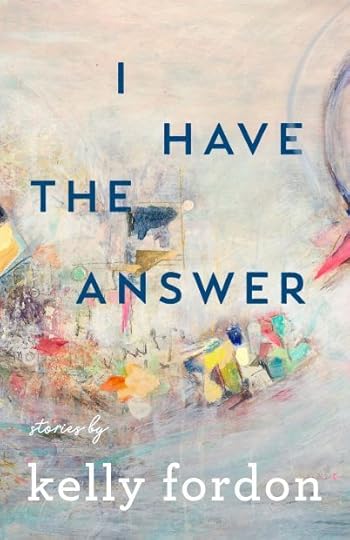 I Have the Answer by Kelly FordonWhat’s the title of your book? Fiction? Nonfiction? Poetry? Who is the publisher and what’s the publication date?
I Have the Answer by Kelly FordonWhat’s the title of your book? Fiction? Nonfiction? Poetry? Who is the publisher and what’s the publication date?I Have the Answer, a short story collection published by Wayne State University Press, April 2020.
In a couple of sentences, what’s the book about?Here’s a description from the WSUP website: Kelly Fordon’s I Have the Answer artfully mixes the fabulist with the workaday and illuminates relationships and characters with crisp, elegant prose and dark wit. The stories in Fordon’s latest collection are disquieting, humorous, thought-provoking, and always infused with deep humanity and tenderness.
What’s the book’s genre (for fiction and nonfiction) or primary style (for poetry)?Fiction, short stories
What’s the nicest thing anyone has said about the book so far?Bonnie Jo Campbell said: “What a great collection! Again and again, Kelly Fordon’s characters charm and disarm us as they face death, divorce, the departure of a maddening child, a diagnosis of dementia, and even molestation. As the world crumbles, they must ask themselves the question, How do I live now? In these big-hearted stories, the answer is to be found in life itself, in living as an act of courage, and living as an art form. Like Lorrie Moore, Fordon proves that comedy is a worthy opponent of tragedy. Times are hard—they’re always hard—so read this book and you’ll feel better!” – Bonnie Jo Campbell, author of Mothers, Tell Your Daughters
What book or books is yours comparable to or a cross between? [Is your book like Moby Dick or maybe it’s more like Frankenstein meets Peter Pan?]A pinch of Aimee Bender, a little Lorrie Moore, a bit of Julia Glass.
Why this book? Why now?During the pandemic, this collection resonates because it includes a lot of stories about people who are also homebound, dealing with family relationships in humorous and not-so-humorous ways.
Other than writing this book, what’s the best job you’ve ever had?I worked as an editorial production assistant at National Geographic Magazine and loved talking with the writers and photographers when they returned from the field.
What do you want readers to take away from the book?I want readers to hopefully finish the book with the feeling that relationships are complicated and we’re all doing the best we can.
What food and/or music do you associate with the book?Chocolate and wine for the food. Here’s a musical line-up I posted about the book at LargeHearted Boy.
What book(s) are you reading currently?I’m reading Rachel Cusk’s new book Second Place and Thomas Lynch’s poetry collection, Bone Rosary.
 Kelly Fordon
Kelly FordonLearn more about Kelly at her website.
Follow her on Facebook and Twitter.
Buy the book from Bookshop.



